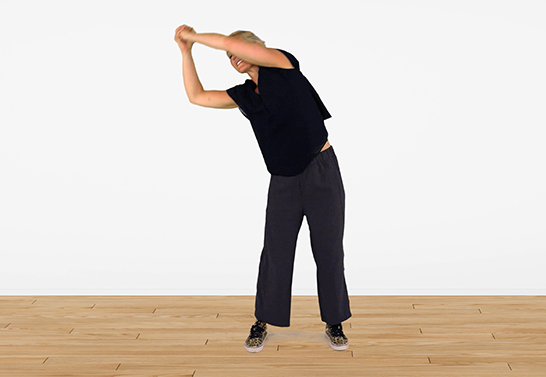
Our app creates meaningful micro-workouts on an individual level. Through micro-workouts you do small bouts of exercise several times throughout the day, breaking sedentary activity and changing up monotonous movement.
Micro workouts is a way for the brain to shut out unnecessary noise and come back to focus. What does research say about being sedentary? How does Wellify help solving the problem of mental health issues, sitting still and fatigue? We have found inspiration from different areas when we have developed this app, ranging from previous research to everyday people’s experiences.


The definition of sedentary is muscular inactivity, meaning we have the same function in our body being sedentary as when we sleep. The bodies different functions slow down; for example, metabolism decreases, and the muscles are in rest mode.
In Sweden we sit on average 9 hours per day. From our ancestors travels and active work with their bodies, we have transferred to a more sedentary work style. Our bodies are adapted to move and therefore we increase the negative health effects when we change to a sedentary workstyle. We increase the risk of heart disease, type 2 diabetes, obesity, disturbed blood fats, high blood pressure and insulin resistance.
Sweden is the most sedentary country, and this is largely due to the high amount of office jobs and overuse of screens. Unfortunately, adults are the only ones in danger of long-term sedentary activity, children and young adults are also in the risk zone. A study done by Generation Pep shows that only 2 out of 10 reach the recommended 1 hour of daily physical activity.
Breaking the pattern of being sedentary can save lives, but this isn’t achieved through movement carried out after a long period of sitting still. According to previous research, we need to move every half an hour to gain these health benefits.


Mental illness has increased drastically the past few years. According to the Swedish Social Insurance Agency measurement carried out in 2017, the amount of registered cases of adaptive disorders and reactions to stress increased from 6,237 in 2006 to 36,552 in 2017.
Fatigue syndrome can affect anyone at any age but many lack the knowledge in how to prevent stress. Therefore, it becomes the workplaces responsibility to help their employees. Through a proactive work where wellness and health is included throughout the workday, mental illness can be largely prevented.